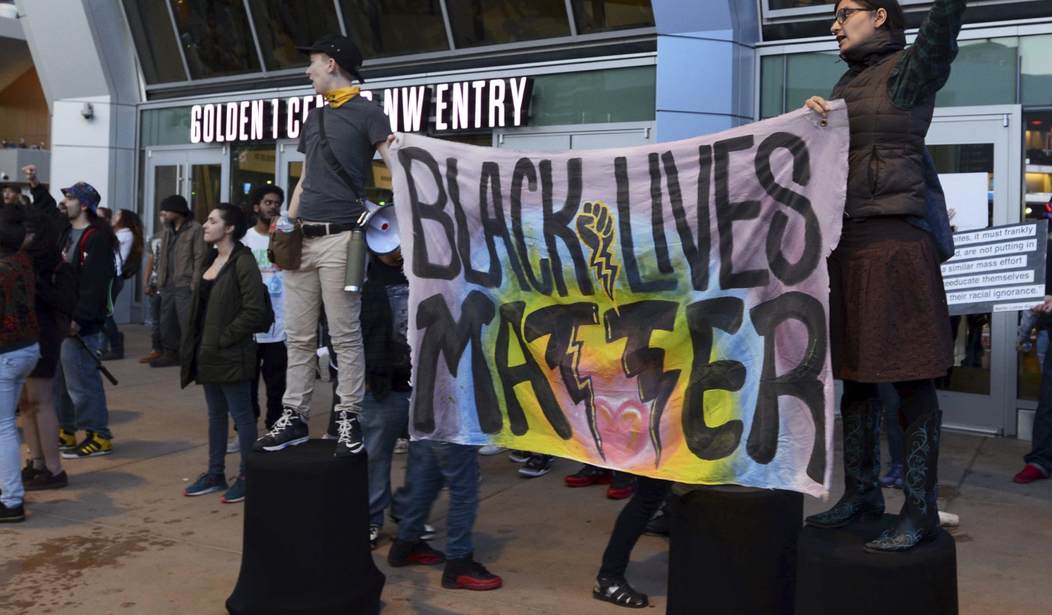WASHINGTON – Rep. Karen Bass (D-Calif.), a member of the House Judiciary Committee, recently called on the FBI to retract its report on “Black Identity Extremism.”
“What even qualifies as a black identity extremist, and are there groups likely to attack law enforcement officers?” Bass said during a Congressional Black Caucus (CBC) briefing on Capitol Hill late last month about “Black Identity Extremists Likely Motivated To Target Law Enforcement Officers,” an internal 12-page August 2017 FBI document that was leaked and published in October.
“We sit on the Judiciary Committee, and on that committee we’ve questioned Sessions, Wray, Rosenstein, all asking the same question and us receiving no answers,” she added.
According to the text of the report, “The FBI assesses it is very likely that BIEs’ perceptions of unjust treatment of African Americans and the perceived unchallenged illegitimate actions of law enforcement will inspire premeditated attacks against law enforcement over the next year. This may also lead to an increase in BIE group memberships, collaboration among BIE groups, or the appearance of additional violent lone offenders motivated by BIE rhetoric.”
The bureau wrote in the report, which was opposed by the National Organization of Black Law Enforcement Executives, that “possible indicators for BIEs posing a violent threat to law enforcement include advocating for violence against law enforcement, violent anti-white rhetoric, attempts to acquire illegal weapons or explosives, and affiliations with others in both the BSE [Black Separatist Extremists] and sovereign citizen extremist movements.”
Bass said that reading the report had a “chilling effect” because it reminded her of the past.
“It reminded me of the ’70s,” she said.
With Black Lives Matter and the “new generation of activists” in mind, Bass added, “If a memo like that was distributed to law enforcement around the country, then who’s to say in a lot of cities and a lot of towns, that next time there was an officer-involved shooting and protests, who’s to say they wouldn’t say all the protesters were black identity extremists?”
Bass and other members of the CBC questioned a panel of witnesses including Nana Gyamfi, an attorney and activist, Mike German, former FBI agent and fellow at the Brennan Center for Justice at NYU, and Errol Southers of the University of Southern California, also a former FBI agent, about the possible origins of the report.
Bass said there are still many unanswered questions and “total retraction” of the report was “absolutely imperative so that the follow-up message sent to the 16,000 local offices that received the initial report is one of lawful protection and service, not one of bigoted investigation and surveillance,” she said after the briefing.
CBC Chairman Cedric Richmond (D-La.) said the FBI report conflated “unconnected things” in order to arrive at its conclusion.
“I identify as black. I protest police violence and I’m concerned about community police relations and, according to this flawed FBI analysis, I would certainly fit the definition of a black identity extremist,” he said.
Rep. Terri Sewell (D-Ala.) shared a similar view.
“We realize that this is very dangerous to actually have a classification like this – harkens us back to the days of Hoover and serious targeting and profiling could result – so I think in this day and age when we have a president who is undermining the intelligence community and the FBI in particular, it is really important the public’s confidence in the FBI is not further undermined,” she said. “So they owe us an explanation as to why this report was put out there and, more importantly, why was it put out there like this and what solutions we can have to effectively address this in our communities.”
Rep. Hank Johnson (D-Ga.) said there “simply appears to be no basis” for the assessments in the report.
“But yet this report is released and people act on it, so we’ll have to be very careful moving forward,” he said.









Join the conversation as a VIP Member